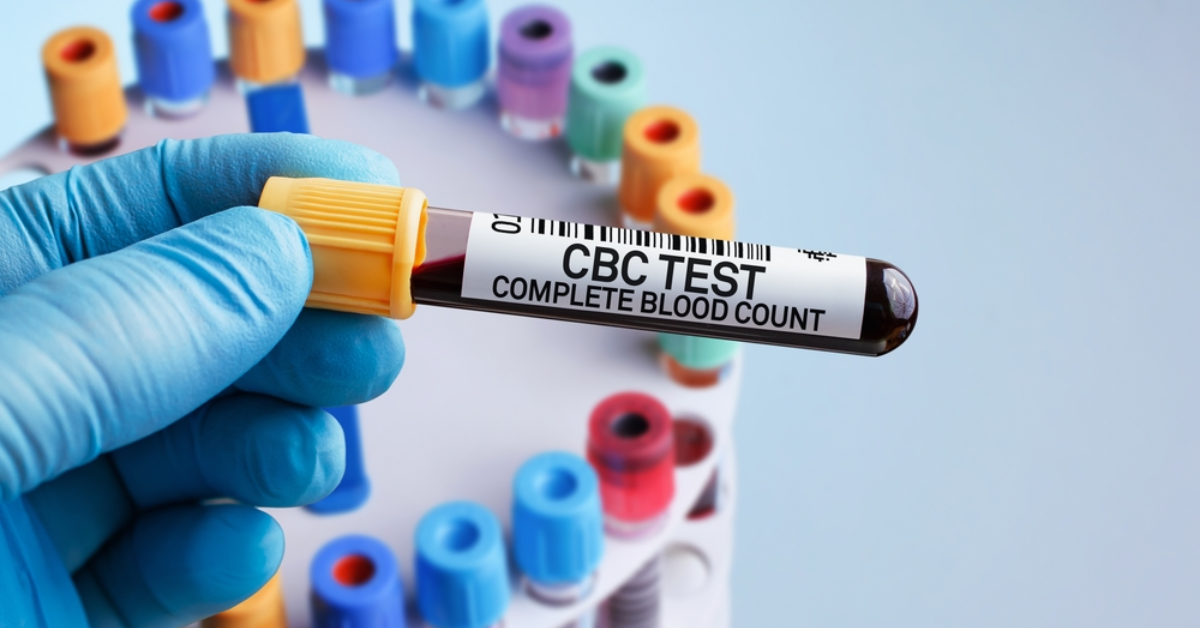The complete blood count (CBC) is a routine blood test that provides valuable insights into a patient’s overall health and well-being. At RapidLaboratory, we recognize the pivotal role of CBC blood test in the diagnosis and treatment of cancer. In this blog, we delve into the significance of CBC in cancer management, exploring its role in diagnosis, prognosis, and monitoring.
Understanding CBC Blood Test
The CBC blood test evaluates various components of blood, including red blood cells (RBCs), white blood cells (WBCs), and platelets. It provides information about the quantity, size, and shape of these blood cells, as well as measures of hemoglobin and hematocrit levels. While CBC is routinely used to assess general health and screen for various medical conditions, its role in cancer diagnosis and treatment is particularly noteworthy.
What is the role of CBC in cancer?
CBC blood test at the best Cancer Diagnostic Lab in Punjab plays a crucial role in cancer diagnosis by detecting abnormalities in blood cell counts that may indicate the presence of malignancies. For example, certain types of cancer, such as leukemia or lymphoma, can cause abnormal levels of WBCs, RBCs, or platelets. Additionally, CBC can reveal signs of anemia, which is commonly associated with cancers of the blood, bone marrow, or gastrointestinal tract. By identifying these abnormalities, CBC helps healthcare providers prioritize further diagnostic investigations and initiate timely treatment interventions.
Why is a CBC important in diagnosis?
The CBC blood test is an essential tool in cancer diagnosis due to its ability to provide valuable clues about a patient’s underlying health status. Abnormalities in blood cell counts, such as leukocytosis (elevated WBC count), thrombocytopenia (low platelet count), or anemia (low RBC count), can serve as red flags for potential malignancies. In some cases, specific changes in blood cell morphology or characteristics may also suggest the presence of cancerous cells. By promptly recognizing these abnormalities, healthcare providers can expedite the diagnostic process and initiate appropriate treatment strategies to improve patient outcomes.
Can cancers be detected by blood tests?
While CBC blood test alone cannot definitively diagnose cancer, certain blood tests may detect tumor markers or specific proteins associated with certain types of cancer. For example, elevated levels of prostate-specific antigen (PSA) may indicate prostate cancer, while increased levels of CA-125 may suggest ovarian cancer. Additionally, blood tests such as lactate dehydrogenase (LDH), alkaline phosphatase (ALP), and carcinoembryonic antigen (CEA) are commonly used as tumor markers for various types of cancer. Although these tests are not diagnostic on their own, they can provide valuable information to guide further diagnostic evaluation and monitor treatment response.
What cancers cause high protein in blood?
Certain types of cancer can cause elevated levels of proteins in the blood, which may serve as indicators of disease activity or progression. For example, multiple myeloma, a cancer of the plasma cells, often results in high levels of monoclonal proteins or immunoglobulins in the blood, known as M-proteins. Similarly, lymphomas, leukemia, and certain solid tumors can produce abnormal proteins or antibodies that contribute to elevated protein levels in the blood. Monitoring protein levels through blood tests can help assess disease burden, response to treatment, and overall prognosis in patients with cancer.
Importance of CBC in Cancer Diagnosis
The Complete Blood Count (CBC) is a fundamental CBC blood test routinely used in cancer diagnosis and monitoring. This test provides valuable information about various components of the blood, including red blood cells, white blood cells, and platelets. In cancer diagnosis, abnormalities in these blood cell counts can serve as important indicators of underlying malignancies. For example, a low red blood cell count (anemia) or low platelet count (thrombocytopenia) may suggest bone marrow involvement by cancer or the presence of metastases in the bone marrow. Similarly, an elevated white blood cell count (leukocytosis) may indicate an inflammatory response to cancer or the presence of leukemia.
Role of CBC in Cancer Treatment
In addition to diagnosis, CBC blood test plays a crucial role in monitoring cancer treatment and assessing treatment response. Chemotherapy, radiation therapy, and other cancer treatments can have significant effects on blood cell counts. Regular CBC monitoring allows healthcare providers to evaluate the impact of treatment on the patient’s hematologic parameters and adjust treatment regimens accordingly. For example, a decrease in white blood cell count (neutropenia) may necessitate dose modifications or supportive interventions to prevent infections, while a decrease in platelet count (thrombocytopenia) may require platelet transfusions or adjustments in treatment timing.
Identifying Cancers with Elevated Protein Levels
Certain cancers can cause elevated levels of proteins in the blood, which can be detected through blood tests. For example, multiple myeloma, a type of blood cancer, is characterized by the abnormal proliferation of plasma cells in the bone marrow, leading to the production of excessive monoclonal proteins (M proteins). Blood tests such as serum protein electrophoresis (SPEP) and immunofixation electrophoresis (IFE) can detect and quantify these abnormal proteins, aiding in the diagnosis and monitoring of multiple myeloma and other plasma cell disorders. Similarly, certain solid tumors, such as liver cancer or pancreatic cancer, can cause elevated levels of specific proteins in the blood, which may be detected through laboratory CBC blood test.
In summary, the CBC blood test plays a vital role in cancer diagnosis and treatment by detecting abnormalities in blood cell counts and providing valuable insights into a patient’s overall health status. While CBC blood test alone may not diagnose cancer, it serves as a valuable screening tool that prompts further diagnostic investigations and guides treatment decisions. At RapidLaboratory, we offer comprehensive CBC blood test services to support cancer management and improve patient outcomes.


